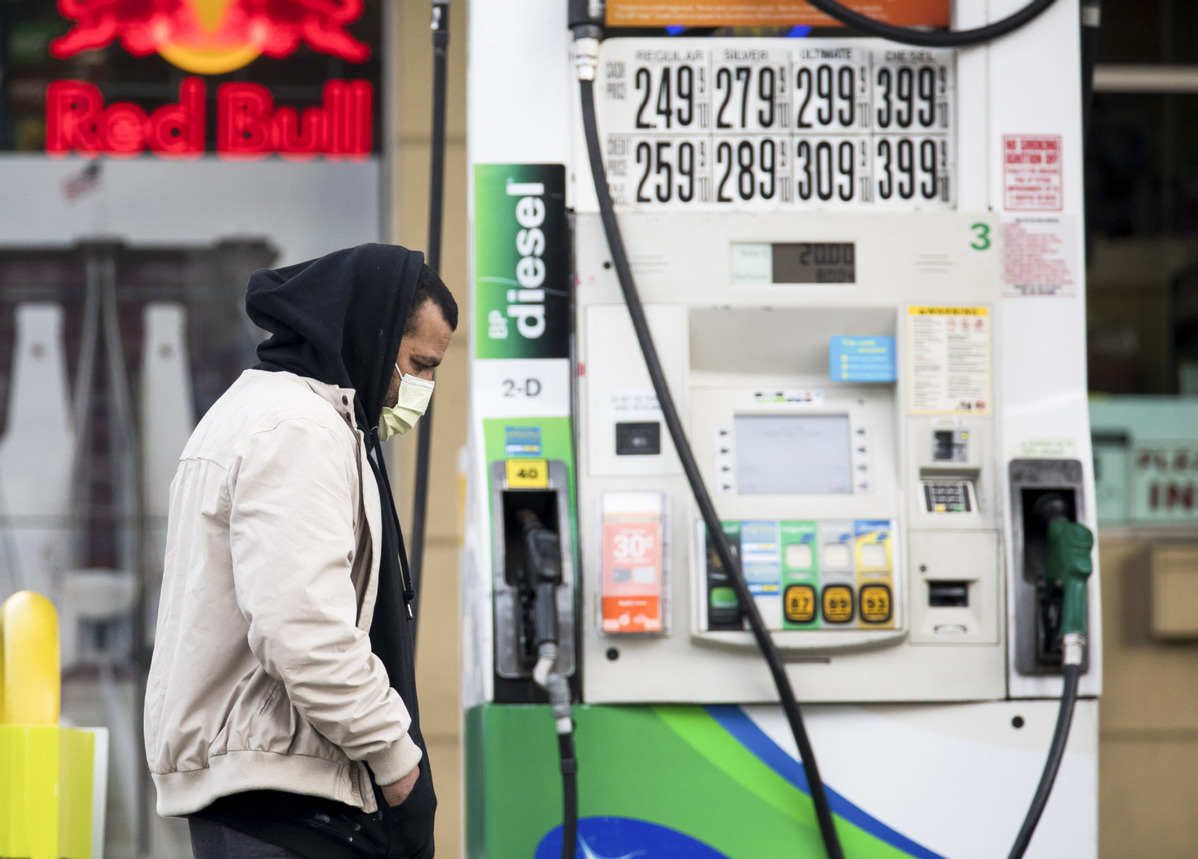Stocks stumble as oil prices plummet
By SCOTT REEVES in New York | chinadaily.com.cn | Updated: 2020-04-21 10:47

The price decline is good news for drivers pulling up to the pump for a fill-up, but bad news for hydraulic frackers who need higher crude oil prices of about $30 to $40 a barrel to operate profitably.
The Chicago Board Options Exchange's Volatility Index rose 14.89 percent from its previous close. The forward-looking “fear index” gauges the stock market’s expectation of volatility in the next 30 days. It’s derived from the S&P 500 options.
On Friday, the Dow closed up 704.81 points, the S&P gained 75.01 points, and the Nasdaq Composite climbed 117.78 points.
The S&P 500, a broader index than the 30-stock Dow, dropped 34 percent between Feb 19 and March 23, as the economy largely shut down amid the coronavirus pandemic. It has regained about 28 percent, but some investors question the strength of the rally and have shorted cruise lines, hotels, resort and technology stocks.
Despite recent gains, short-sellers believe some sectors of the market will fall.
A short-seller bets that the price of a stock will decline. The short-seller borrows shares for a specified period and sells them to others willing to pay the current price.
If the shares fall, the short-seller buys them back at the lower price and returns them to the owner, typically a broker, and pockets the profit. But if the shares rise, the short-seller takes a loss.
Some hotels have closed during the outbreak, and the US Centers for Disease Control and Prevention has prohibited cruises into July, making the sectors subject to short-selling.
Demand for air travel has collapsed as COVID-19 spread. On Monday, United Airlines said it lost $2.1 billion in the first quarter. In early trading, the company’s stock lost $1.29 a share, or 4.44 percent, and closed at $27.79 a share. The 52-week range is $17.80-$96.03 a share.
But some companies, including Walmart, Campbell Soup and Kroger, have performed well as people shelter in place.
Short-sellers are likely to be aggressive as long as the market remains volatile and produces wide swings between positive and negative territory.
Coca-Cola, Delta Air Lines and Netflix will report earnings this week, giving investors further insight into what the coronavirus has done to the economy.
Reuters contributed to this story.
























